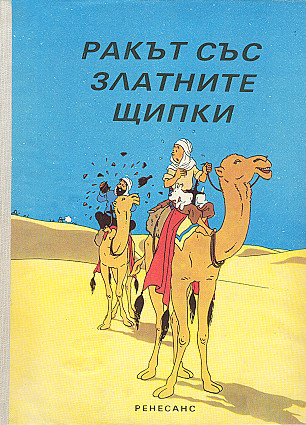| TINTIN LANGUAGES | |
| AFRIKAANS | |
| ALGUERES | |
| ALSATIAN | |
| ARABIC | |
| ASTURIAN | |
| BASQUE | |
| BERNESE | |
| BENGALI | |
| BRETON | |
| BULGARIAN | |
| CAMBODIAN | |
| CATALAN | |
| CHINESE | |
| CORSICAN | |
| CZECH | |
| DANISH | |
| DUTCH | |
| ENGLISH | |
| ESPERANTO | |
| FARSI | |
| FAEROESE | |
| FINNISH | |
| FRENCH | |
| FRIESIAN | |
| GALICIAN | |
| GALLO | |
| GAUMIAN | |
| GERMAN | |
| GREEK | |
| HEBREW | |
| HUNGARIAN | |
| ICELANDIC | |
| INDONESIAN | |
| ITALIAN | |
| JAPANESE | |
| KOREAN | |
| LATIN | |
| LUXEMBOURGER | |
| MALAYALAM | |
| NORWEGIAN | |
| OCCITAN | |
| PICARDY | |
| POLISH | |
| PORTUGUESE | |
| ROMANSCH | |
| RUSSIAN | |
| SERBO-CROAT | |
| SINHALESE | |
| SLOVAK | |
| SPANISH | |
| SWEDISH | |
| TAHITIAN | |
| TAIWANESE | |
| THAI | |
| TIBETAN | |
| TURKISH | |
| VIETNAMESE | |
| WELSH | |
| TOTAL 60 VERIFIED LANGUAGES | |
| RUMOURS | |
| MIRANDES | |
|
MONEGASCO |
|
| PROVENÇAL | |
| RUANDES | |
| MONEGASCO | |
| LINKS | CRAB MENÚ | CASTAFIORE MENU |
 |
BULGARIAN |
Bulgarian is spoken by about 90 percent of the population of Bulgaria, or some 8 million people. it is one of the Slavic languages and, in fact, played an important role in the historical development of this family. When the first alphabet for the Slavic languages was devised in the 9th century, it was a dialect of Bulgarian that served as the base. Old Bulgarian, or Old Church Slavonic as it came to be called, long served as the literary vehicle of all the Slavic languages. During the Middle Ages it was one of the three major literary languages of Europe.
The modern Bulgarian alphabet is virtually the same as the Russian, except that the ***, the little used "hard sign" in Russian, in Bulgarian serves as a vowel. It is pronounced something like the u in the English word "fur" and is, in fact, the second letter in the word Bulgaria. Bulgarian also differs from the other Slavic languages in that it makes use of articles, both definite and indefinite, the former being suffixed to the noun. The verb has no infinitive form-like the English infinitive, which is formed by placing the word "to" in front of the verb, the Bulgarian infinitive is formed with the word da.
|
PUBLISHER
NIKA (RENAISSANCE) |
|
ONLINE SHOPING ? |
|
LINKS
|
|
|
I'VE GOT THIS ONE | ! WANTED! |